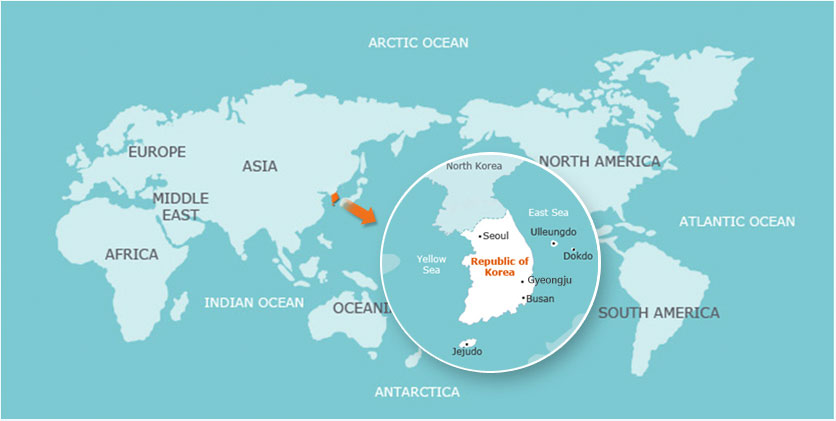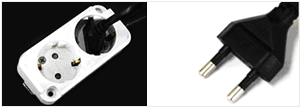About Korea
The Republic of Korea, hereinafter referred to as Korea, is a country visited by approximately 10 million international travelers every year. With its long history and unique culture and traditions, the country has a lot to offer to its visitors. Continue reading to learn some more general information about Korea before visiting.
Where is Korea?

The Korean peninsula, roughly 1,030 km long and 175 km at its narrowest point, has a total land area of 100,033 km2 and is located in Northeast Asia. With Seoul as its capital city, Korea is neighbored by Japan to the east, China to the west and the Democratic People’s Republic of Korea (North Korea) across the northern border.
Language
Hangeul (한글), Korea’s official alphabet, was first invented by King Sejong during the Joseon Dynasty. Originally called Hunminjeongeum (훈민정음), the language was conceived in 1443, and further promulgated by the King in 1446. At the time of its inception, the language consisted of 17 consonants and 11 vowels however, since then, 3 of the originally established consonants and 1 vowel have fallen into disuse bringing the total number of characters to 24. Syllables are formed by the selective combination of vowels and consonants to create words.
Basic Expressions
Business Hours
Government office hours are usually from 9:00 to 18:00 on weekdays. Banks are open from 9:00 to 16:00 on weekdays. Most stores are open every day from 10:30 to 20:00, including Sundays.
Currency & Exchange
The currency of Korea is the South Korean won, or won for short. The currency sign for the won is ₩. There are currency exchanges at the airports and select locations around Seoul and elsewhere, but the best way to get money all over Korea would be through ATMs. You can find ATMs at airports, subway stations and most convenient stores. You would use them the same way you would at home and there will likely be a transaction fee of about $3-$5. It is generally a good idea for all travelers to bring at least $100 USD on them that they can exchange when they arrive in Korea in case they have issues with their card

Tip & Tax
Service charges are included in your bill for rooms, meals, and other services at hotels and upscale restaurants. Koreans occasionally do tip when they are especially pleased with the service they receive. Foreign tourists can receive nearly 10 % VAT refunds for purchases at Duty Free shops. Goods must be taken out of Korea within three months of purchase to be eligible for a tax refund. Visitors can receive a refund on a receipt for a minimum purchase of KRW 50,000 (around USD 43). To receive this refund, present receipts with the purchased goods at the customs clearance desk at Incheon International Airport when departing.
Electricity Info
The standard electricity supply is 220 volts AC/60 cycles. Most hotels may provide outlet converters for 110 and 220 volts. Participants are recommended to check with the hotel beforehand.

Emergency Phone Numbers
- 1339: Medical Emergency
- 119: Emergencies for Fire, Rescue & Hospital Services, First Aid Services
- 112: Police
Useful Websites
Korea Tourism Organization
Go
Seoul Tourism Organization
Go
Korea Immigration Service
Go
Ministry of Foreign Affairs and Trade
Go
Incheon International Airport
Go







